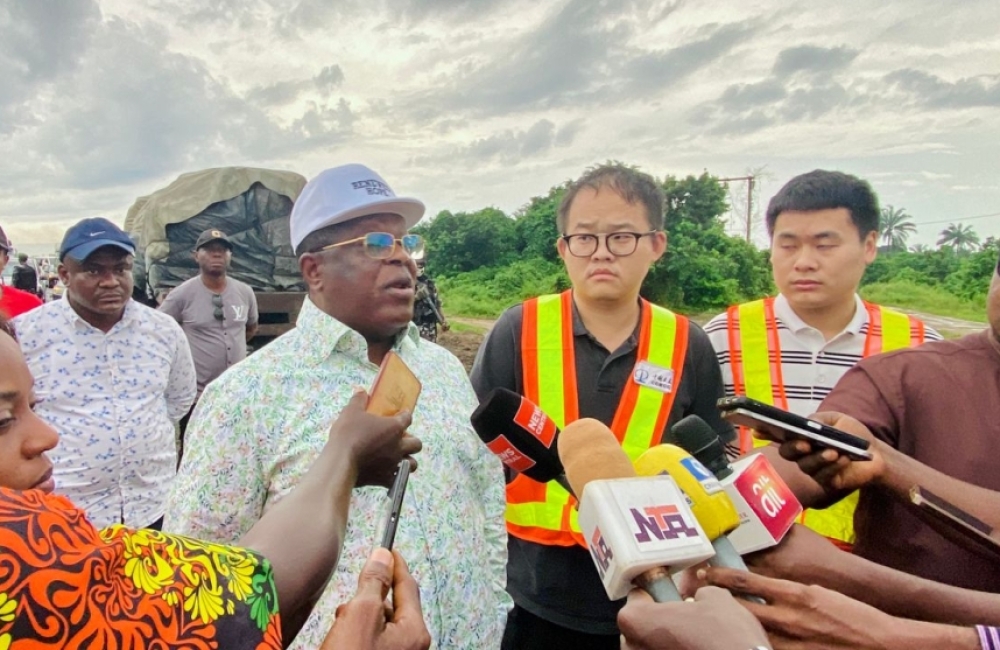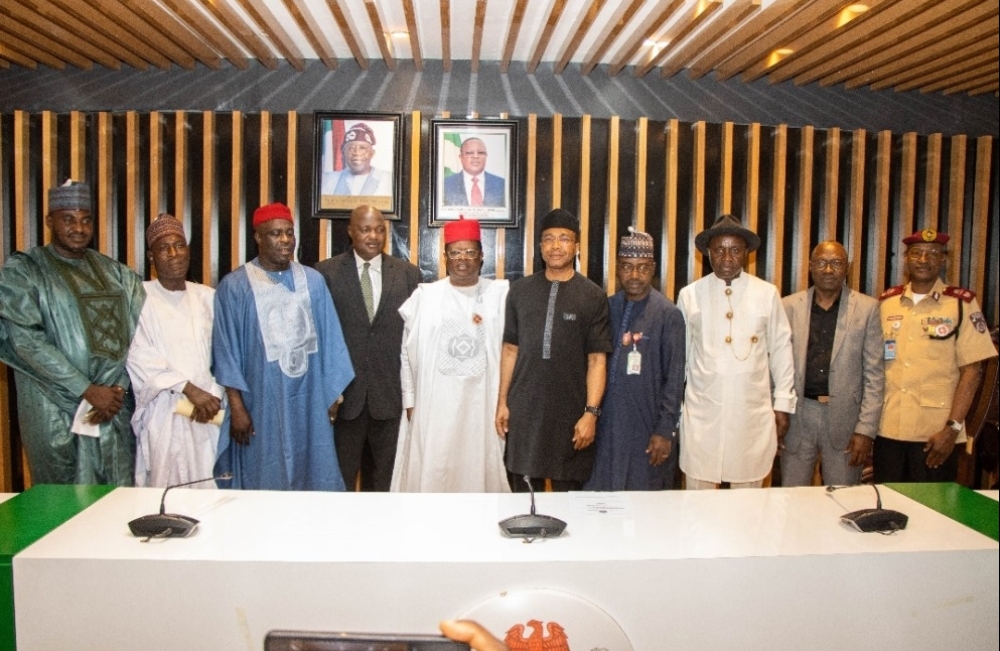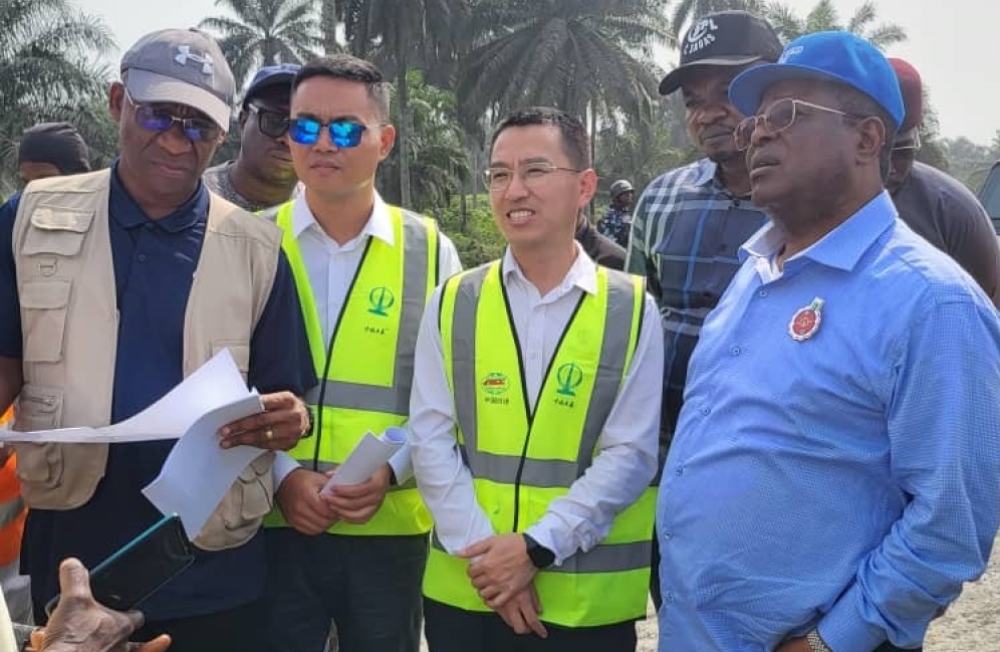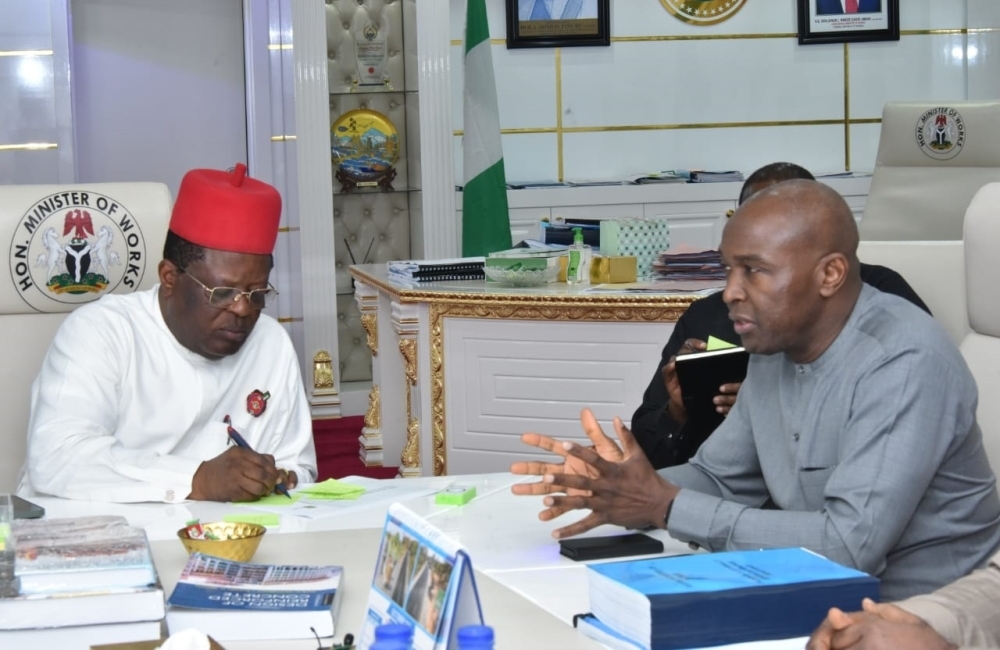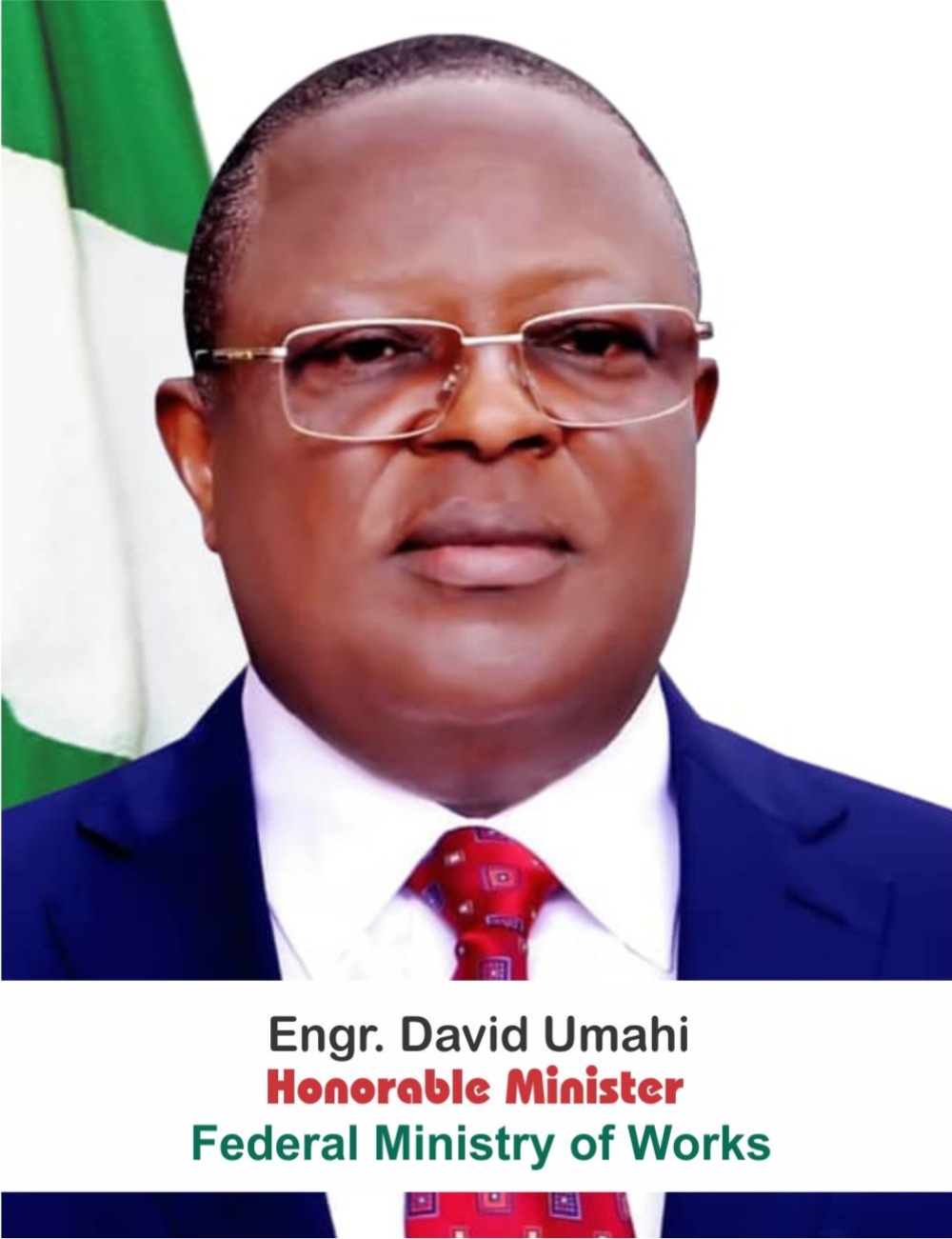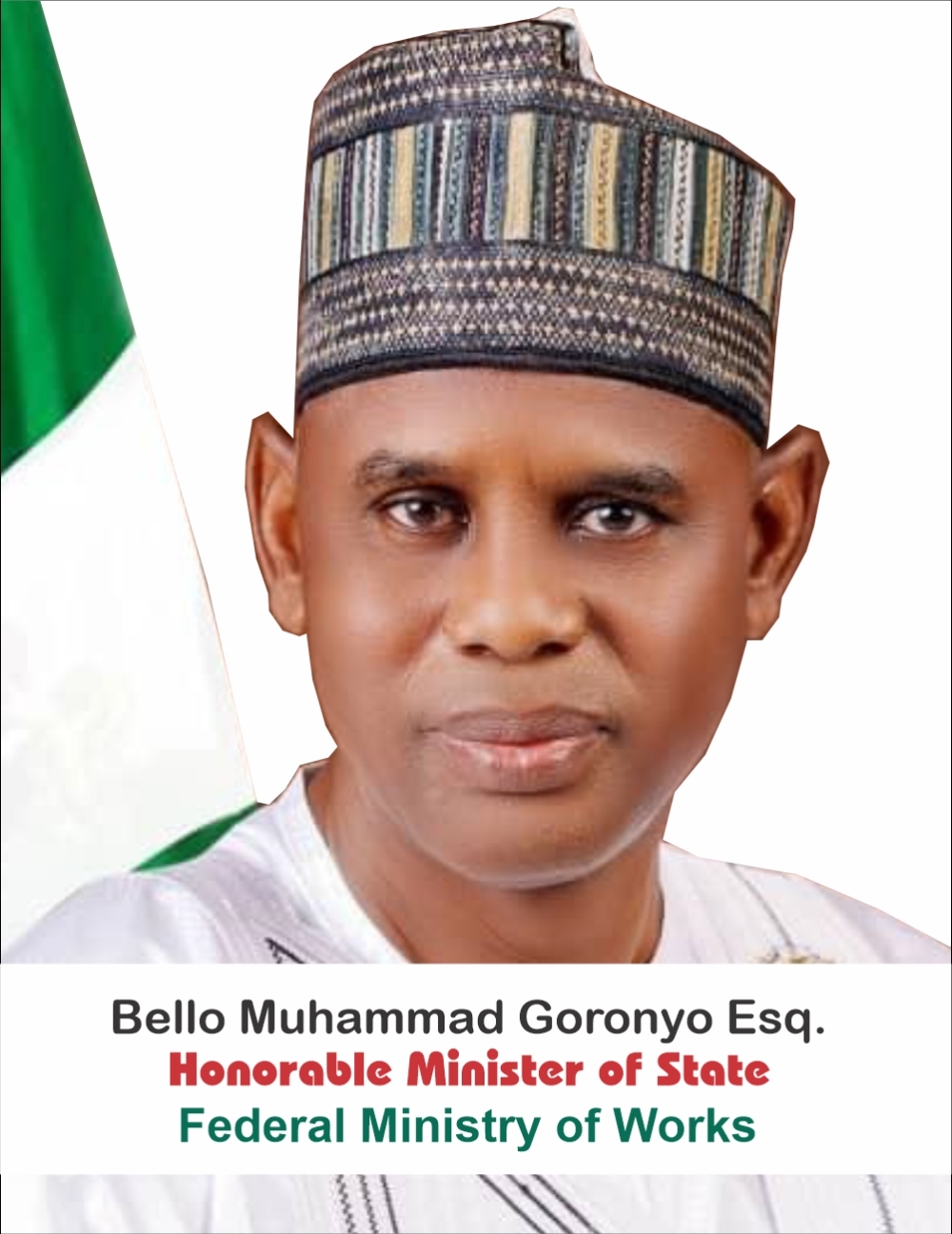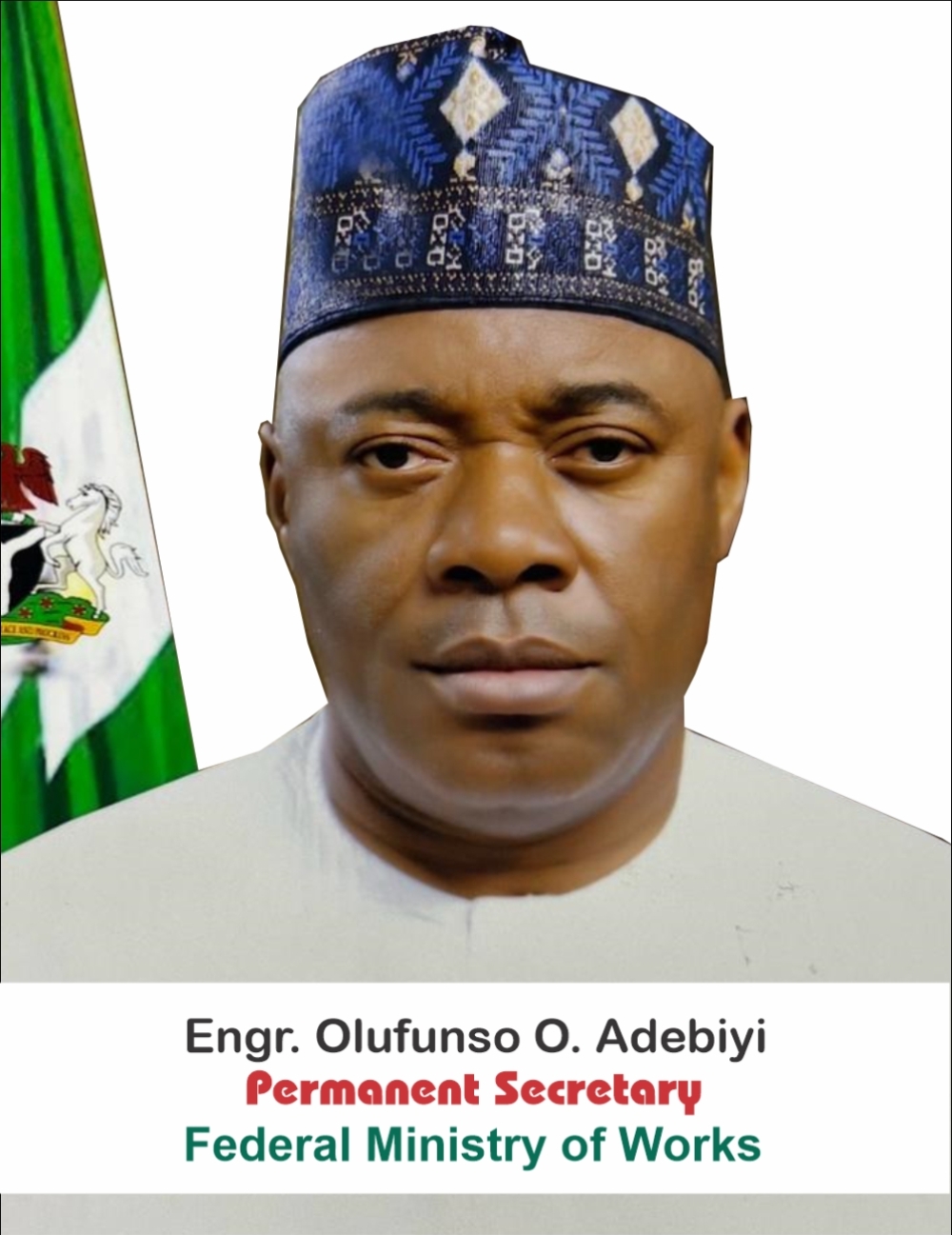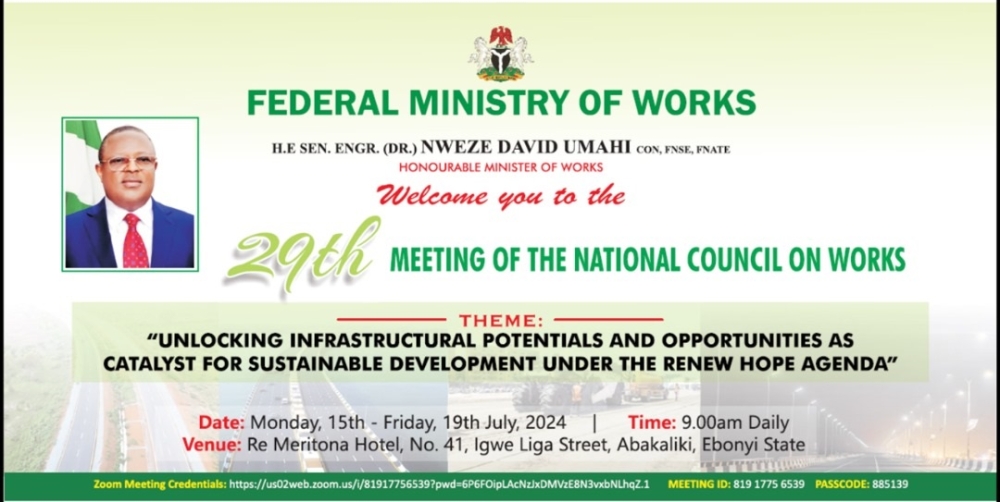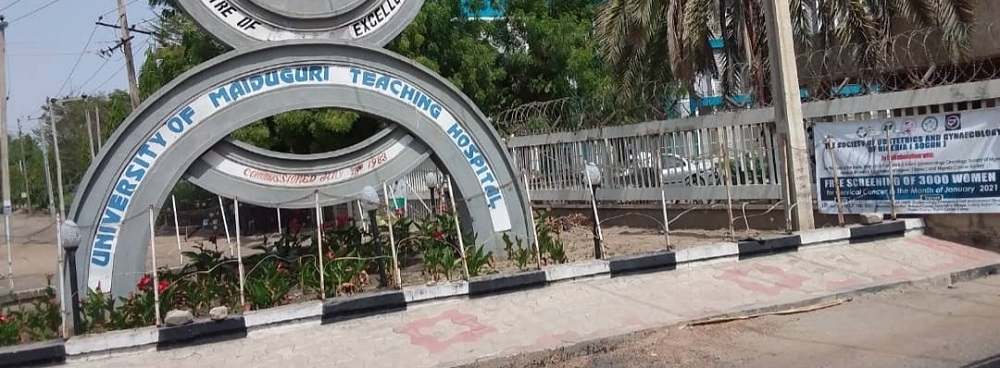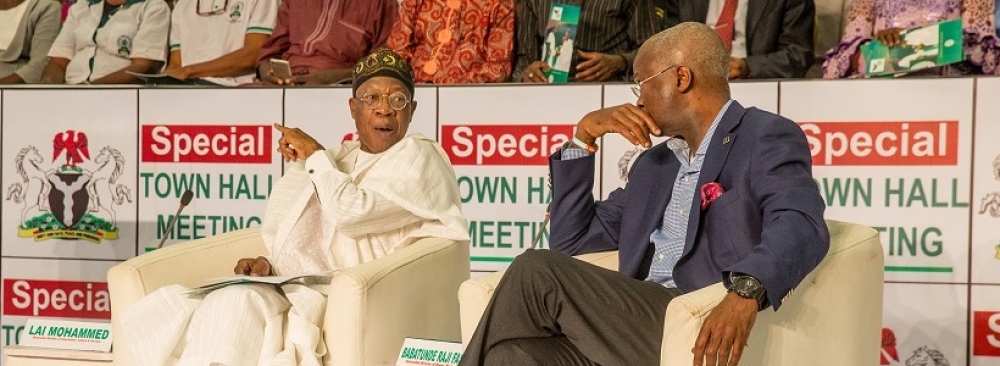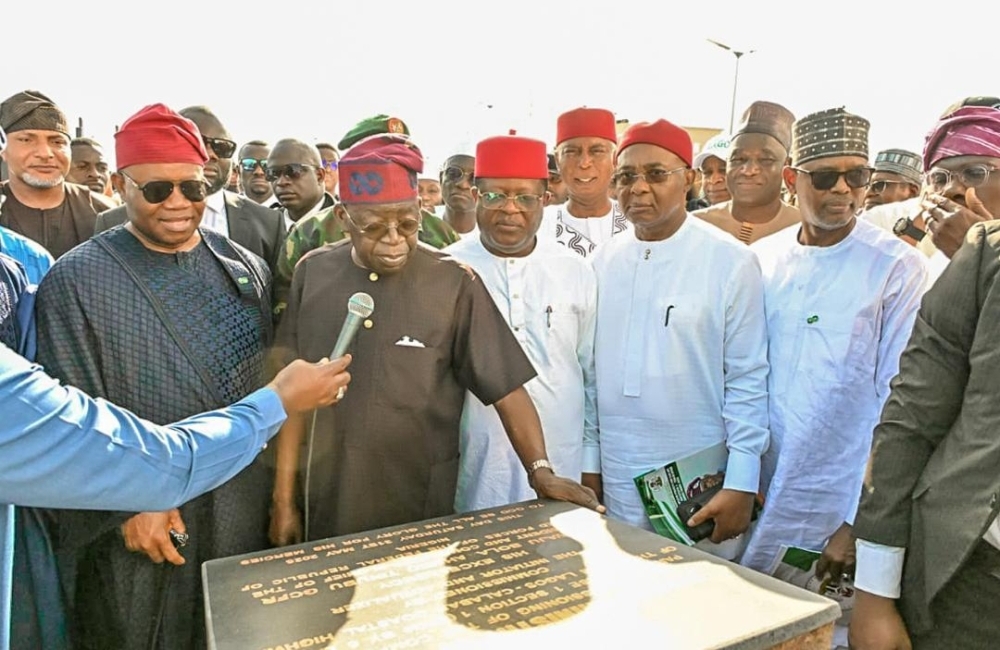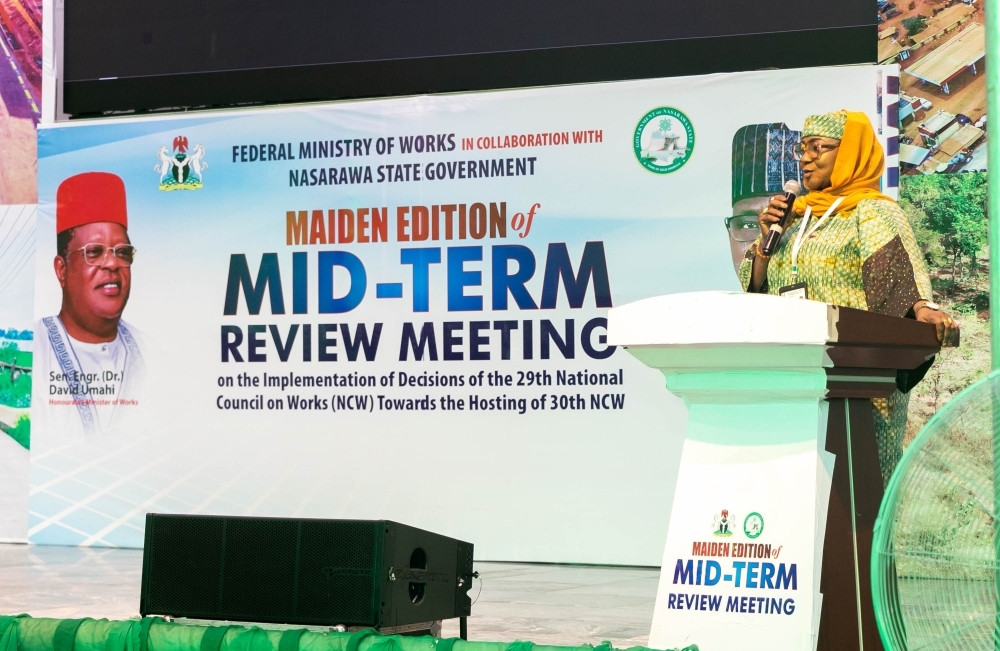Speech Delivered By H.E, Babatunde Raji Fashola, SAN At The South West Town Hall Meeting
We must first commend the Hon. Minister of Information and Culture for inaugurating this series of town hall meetings that have been held across Nigeria over the past 3 years.
This in itself is something that has changed in how the FGN communicates with citizens and is quite different from the previous attempts that were targeted to react to crisis or to catch votes at the 11th hour.
I will start my presentation by giving you an overview of what the government of Nigeria is getting done through my ministry (Power, Works and Housing) across the country and then I will come to the specifics as it affects the South West zone.
Of course, I cannot pretend that politics is not in the air, and that elections are a few weeks away. This means that all Nigerians including those of us in the Southwest have to make a choice about who to choose and which party to vote for.
I am mindful of the fact that this is the first time where we have had two major parties manage our affairs.
One for 16 years and another for 3 and a half years thus far.
I am aware that we still want more service from Government, and therefore decision-making will require deep reflection.
Do we go back to those who have served you for 16 years since 1999; or do we move forward with this government that has had only three years and five months to serve us?
So the next election might well be a choice between going back and moving forward.
Let me start by saying that my ministry is responsible for delivering some of Nigeria’s critical infrastructure for transport, electricity and housing.
In 2015 when you elected this government, the budget for these three ministries, left behind by the previous government, was N19 billion for works, N5 Billion for power, and N1.2 Billion for housing making a total of N25.2 Billion.
In the year 2017, the budget for works was N394 Billion; Power was N69.96 Billion and Housing was N64.9 Billion (Total N529 Billion).
In a country where the population is growing faster than the infrastructure, the difference between these budgets must tell you that this government is more serious about providing infrastructure to support you.
So, if you need more roads, more bridges, more power, more housing and the Job opportunities and prosperity that their delivery will bring, your choice in the next election should be easier.
Don’t go back to a budget of N25.2 Billion for Infrastructure , move forward with a budget for Infrastructure which has grown to N543 Billion in 2018.
Another feature of the difference between these two budget sizes is that the last government was spending less on infrastructure for almost one decade when oil prices stayed at $100 per barrel during that decade.
This government is spending more on infrastructure when oil prices largely hovered between $40-$60.
So, in making your choice, please consider who is the better manager. The one who did less with more or the one who did more with less.
Again I urge you to reflect. Do you want to go back to doing less with more, or move forward with doing more with less.
And before I leave this point, let me just inform you that over the last 10 years, from the proceeds of oil, Saudi Arabia spent $420 billion on infrastructure.
But it is not about spending money alone, it is about what we did with it; and what was left behind for us.
What was left behind were massive debts owed to contractors who had not been paid for 3 to 5 years and who had laid off thousands of workers and shut down equipment and plants.
That was one of the reasons why the economy first went into recession, and, I suspect, one of the reasons they quickly conceded defeat.
They also left behind debts owed to state governments who were forced to intervene on federal infrastructure especially roads and bridges. That figure stands at about N450 Billion.
What we spent the money on, was to pay contractors and today I can tell you that there is no state in Nigeria where we are not building at least one Federal Road.
We are constructing houses in 34 states in a pilot scheme to determine affordability and acceptability; and we have 90 transmission projects aimed at improving connectivity between the GenCos and the DisCos who serve you.
Those 90 projects are largely resuscitated because this government has recovered 690 containers of power equipment out of over 800 containers left at the Port for almost a decade because they did not pay contractors, who then could not pay the shippers and warehouse companies.
The Buhari government has paid, the projects are making progress. (Adamawa) (Odogunyan) (Ejigbo) (Apo) (Damaturu) are some of those completed Transmission Sub-stations.
Those of you from Ondo and environs will agree that although the work is not finished, your travel time on the Benin-Ore-Sagamu road has reduced.
Our contractor is on site and has to work while you use the road.
The same is true of the Lagos-Ibadan expressway that connects 3 states of Lagos, Ogun and Oyo; and links to Ondo and beyond.
Those of you who use the road will acknowledge that you no longer have to spend the night on the road.
You can go to Ibadan from Lagos and be sure that you can return on the same day.
Yet we have not finished. Please as you prepare to choose next year, remember those long hours on Benin-Ore, Lagos-Ibadan that sometimes stretched into the Night. Do you want to go back ?
Ask yourself if progress on these roads in 3 years is better than what you have seen over 16 years.
It will help you decide who to choose to ensure that the road is finished, and you can move forward.
Also remember those who presided over the cuts in the budget of these roads in the 2017 budget.
As they plan to frustrate and slow down the Buhari government, the president innovates and finds solutions.
There is now a Presidential Infrastructure Development Fund to ensure that the Second Niger bridge, the Abuja-Kaduna-Kano Road, Lagos-Ibadan expressway and some other projects are not deprived of funding again.
Major roads in the Southwest like the Lagos-Otta-Abeokuta Road, the Ikorodu-Sagamu road, which had been deserted and left to decay, now have contractors at work. Do you want to go back to that ?
The Apapa- TinCan - Mile 2 -Oshodi- Oworonshoki road has been awarded and work should start sometime in November this year as the construction equipment are being readied.
This will give a final solution for the gridlock that was inherited from the last government.
These are some of the examples of what has changed and is changing for the better.
Those who ran it aground for 16 years now say we are not quick enough.
The question you right thinking and well-meaning citizens should ask is which Nation has been rebuilt in 4 years?
It is going to take more than one election cycle to consolidate on the progress I have shared with you; and if you do not choose wisely you can reverse it.
A choice to go back is a choice to reverse this progress and a choice to move forward is a sensible choice to consolidate and progress.
Those same people who caused the problem cannot now be trusted to fix it.
You will hear from them that the country has problems as they try to weaponise our challenges to deceive Nigerians.
The infrastructure decayed under their watch; insurgency and bombings started under their watch; the grand corruption under their watch makes it impossible to identify one item of critical infrastructure that Nigeria can point to in a decade during which oil price averaged over $100 per barrel. (1976; 1980s)
On the housing side, as I said we are in every state including all the states of the South West except Lagos. Each site employs not less than 1,000 people made up of builders, artisans, fabricators, and vendors and we plan to do much more.
Through this infrastructure commitment, the President and the government is driving the economy vehicle in the right direction.
The last quarter report of the National Bureau of Statistics for Q2 of 2018 shows the following rate of growth in sectors affected by my ministry:
Transportation – (Road, rail, water and air) – 21.76%
Construction – 7.66%
Electricity- 7.59%
But it is not just travel time reduction, and economic growth that is impacted, the number of road traffic accidents, injuries and loss of lives are reducing month by month as FRSC figures from June and July 2018 show. While the biggest cause of accidents remains speed violations.
Let me close with some specific comments on power in the South West :- Magboro, Mowe, Ibafo, Ondo (North and South) are communities who were never connected to power supply before.
That story has changed. They are now connected and experiencing power supply. That is change.
This is because we increased generation from 4,000 to 7,000 MW; averaging 1,000 MW per annum; Transmission from 5,000 to 7,000MW averaging 660MW per annum, and distribution from 2,690 MW in May 2015 to 5,222MW in January 2018, averaging 844 MW per annum.
We have not finished and we have not reached everybody yet; but many of you can tell the difference now and attest to the fact that things have changed for the better.
Ask yourself if you use your generator longer today than in 2015 or if you spend less money on diesel today than in 2015, or if you are getting power supply longer today than in 2015.
Please choose next year according to that answer.
Also ask yourself who has done better: 4,000 MW over 16 years at an average 250 MW per annum? Or 3000 MW over 3 years at an average of 1000 MW per annum?
I have addressed the choice before you between going back and moving forward.
Let me end my contribution on another issue that is critical to the decision you have to make about your future.
That issue is TRUST.
Who will you trust to better manage your affairs . The one who did less with more; or the one that is doing more with less.
Without a doubt, we have done more with less time and with less money. That is change and we remain committed to doing more.
Babatunde Raji Fashola, SAN
Honourable Minister of Power, Works and Housing
